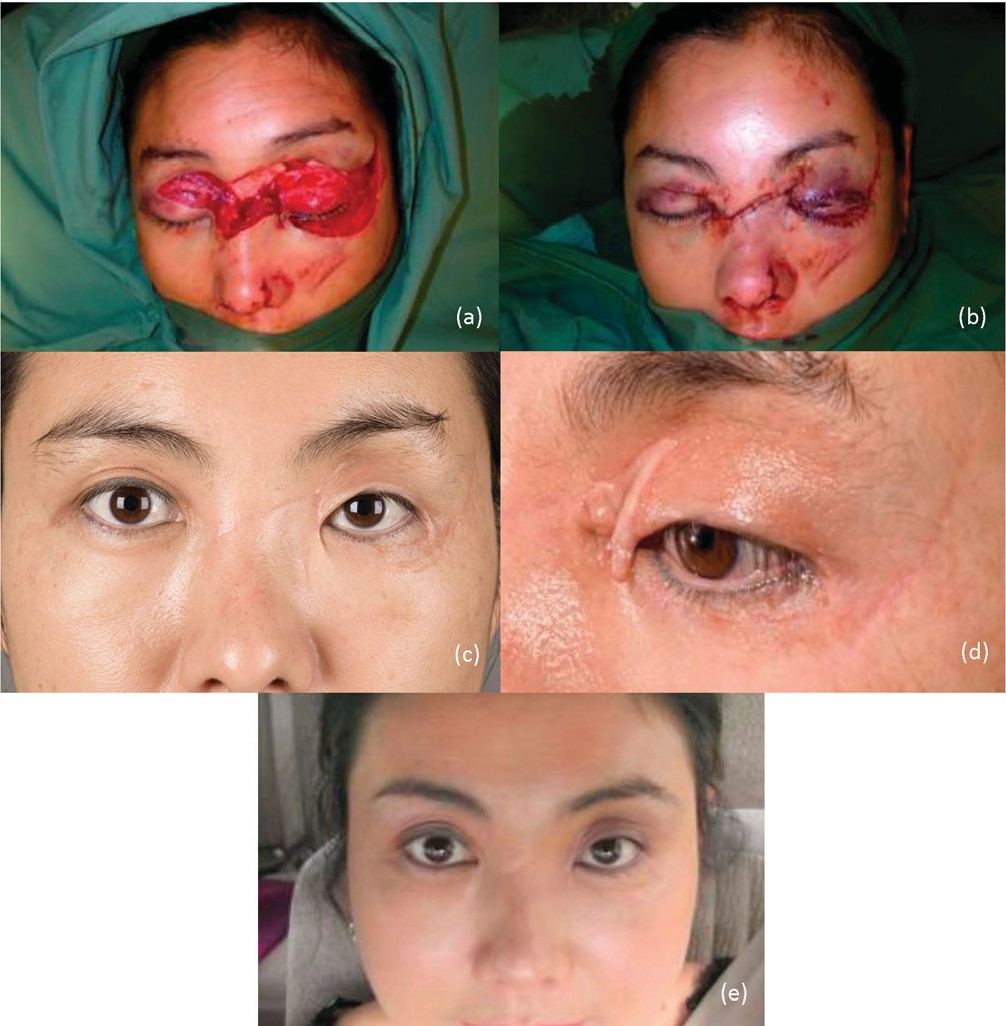Mommy Makeover Bellevue: Recover Your Pre-Baby Body with Specialist Treatment
Mommy Makeover Bellevue: Recover Your Pre-Baby Body with Specialist Treatment
Blog Article
A Deep Dive Into the Usual Validation for Looking For Plastic Surgery: Unloading the Desire for Adjustment and Self-Improvement
The inspirations behind the pursuit of cosmetic surgery expand past simple visual improvement, reflecting a nuanced interaction of societal assumptions, individual aspirations, and emotional aspects. As individuals increasingly look for to straighten themselves with prevailing appeal requirements, it becomes crucial to take a look at the underlying reasons that urge them to make such considerable changes. The effect of media portrayals and individual narratives can not be ignored, as they shape assumptions and wishes in profound methods. This evaluation motivates critical inquiries regarding the ethical effects and future trajectories of cosmetic treatments, welcoming additional exploration right into the intricacies of self-improvement and identity.
Social Stress and Charm Requirements

The impact of these elegance ideals can be extensive, instilling a sense of inadequacy in those who do not adjust. As a result, numerous may look for plastic surgery as a method of straightening their appearance with these social assumptions. mommy makeover bellevue. This need for consistency can stem from a wide array of inspirations, consisting of the aspiration for enhanced social condition, improved charming potential customers, or boosted expert chances
In addition, these stress are not restricted to details demographics; they influence people throughout different ages, genders, and backgrounds, highlighting the pervasive nature of beauty standards. This widespread influence raises essential questions about the values of plastic surgery and the implications of social criteria on private options. Ultimately, comprehending these pressures is essential for fostering a more comprehensive meaning of charm that celebrates variety.
Individual Experiences and Transformative Stories
Several individuals that undertake plastic surgery report transformative experiences that prolong beyond simple physical modifications. For many, these procedures function as a catalyst for boosted self-worth and a renewed feeling of identity. People often explain feeling freed from long-standing instabilities, causing enhanced self-confidence in both expert and individual realms.
Take, for instance, the story of a girl that underwent breast enhancement after years of feeling awkward regarding her appearance. Post-surgery, she reported not only a newfound convenience in her body yet additionally a considerable enhancement in her social life and occupation chances. Likewise, a middle-aged guy that selected to undergo a facelift shared exactly how the treatment rejuvenated his overview on life, prompting him to pursue brand-new passions and relationships.
These personal stories emphasize the profound influence plastic surgery can carry individuals' lives. As they accept their transformed selves, many locate empowerment in their choices, usually using their experiences to influence others pondering similar journeys. Eventually, these transformative tales highlight the multifaceted factors people seek cosmetic surgical procedure, intertwining personal development with the search of aesthetic improvement.
Mental Factors Behind Plastic Surgery
Many psychological aspects add to the decision to undergo plastic surgery, showing much deeper emotional and mental health and wellness factors to consider. People usually seek surgical enhancements as a way to deal with sensations of inadequacy, reduced self-worth, or dissatisfaction with their look. These emotional motivations can be rooted in previous experiences, social comparisons, or personal desires.
Body photo distortion is a prevalent concern, where people view their physical characteristics in an exaggeratedly unfavorable light. This distortion can bring about obsessive ideas about perceived imperfections, motivating the need for surgical alteration as a remedy - mommy makeover bellevue. Furthermore, the pursuit of excellence and societal stress can magnify these feelings, pressing individuals toward aesthetic procedures in hopes of attaining an idyllic version of themselves
Additionally, the concept of self-improvement plays a critical role. Lots of individuals check out plastic surgery as a pathway to improve their quality of life, thinking that enhanced appearance will certainly bring about enhanced social acceptance, far better relationships, or improved career chances. Ultimately, the mental variables behind plastic surgery highlight the intricate interaction between individual self-perception and exterior impacts, exposing the multifaceted nature of the desire for adjustment.

The Function of Media in Perception
In today's culture, media plays a critical role fit understandings of appeal and self-worth. Via different platforms-- social media sites, television, and advertising and marketing-- idealized criteria of appeal are frequently disseminated, affecting individual desires and self-image. These portrayals frequently highlight narrow interpretations of good looks, mostly including youthful, slim, and electronically enhanced pictures, which can develop unrealistic criteria for people aiming you could look here to conform.
The effect of media is more intensified by the prevalent nature of social networks, where users are pounded with curated content that highlights aesthetic enhancements, endorsing article source a society of comparison. This consistent direct exposure can result in feelings of insufficiency amongst customers, prompting them to think about cosmetic surgical treatment as a means of attaining the viewed ideal. Study indicates that people who engage with these media depictions are more probable to reveal dissatisfaction with their look, enhancing the wish for medical treatments.
In addition, the normalization of plastic surgery in media narratives can desensitize audiences, framing such treatments as commonplace and also essential for social approval. Hence, the media's representation of beauty not just influences individual choices regarding cosmetic surgery but also contributes to a wider societal discussion concerning self-regard and identification.
Ethical Considerations and Future Trends
Amidst the growing popularity of plastic surgery, moral factors to consider surrounding the practice have actually come to be progressively popular. As the demand for treatments increases, so as well do concerns pertaining to educated permission, the psychological inspirations of individuals, and the potential for exploitation by doctors. It is critical for specialists to guarantee that patients totally understand the advantages and dangers, in addition to the ramifications of their selections, to foster an accountable approach to aesthetic improvements.
Additionally, the impact of social networks and beauty criteria questions regarding the influence on psychological health, especially among prone populaces. As awareness of body photo issues expands, ethical method demands a cautious analysis of the motivations behind medical treatments. Specialists have to balance person desires with honest responsibility, guaranteeing that choices are rooted in genuine self-improvement rather than social stress.

Final Thought
In conclusion, the quest of cosmetic surgical procedure is influenced by an assemblage of societal stress, individual experiences, and psychological aspects. The desire for positioning with dominating appeal criteria, coupled with the capacity for transformative end results, highlights the intricate motivations driving individuals towards these treatments. Furthermore, the role of media in forming perceptions of charm can not be underrated. As moral considerations progress, future fads in cosmetic surgery will likely show recurring societal discussions surrounding self-improvement and private identification.
Frequently, social stress and dominating appeal requirements play a considerable function in individuals' choices to seek cosmetic surgical procedure. Inevitably, these transformative stories highlight the diverse factors people look for cosmetic surgical treatment, intertwining individual development with the search of aesthetic enhancement.
Numerous individuals watch cosmetic surgical procedure as a path to improve their quality of life, thinking that enhanced appearance will certainly lead to boosted social acceptance, better partnerships, or improved career possibilities. Eventually, the psychological variables behind cosmetic surgical treatment underscore the intricate interplay in between private self-perception and external impacts, exposing the multifaceted nature of the need for modification.
As ethical factors to consider develop, future trends in cosmetic surgical procedure will likely show ongoing societal discussions surrounding self-improvement and specific identity.
Report this page